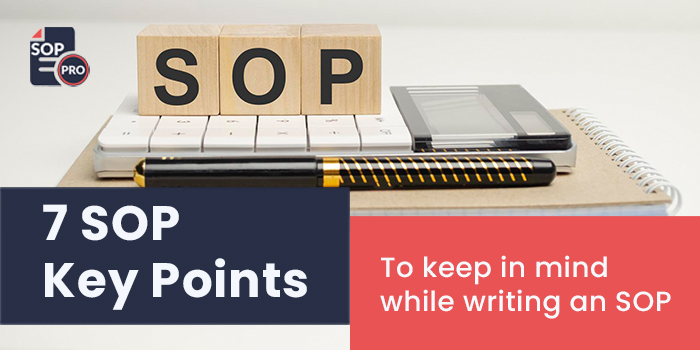Every student pursuing higher studies will have to write an SOP for PhD admissions at one time or another. It may seem scary at first, but if you break it down and concentrate on one paragraph at a time, you can crack the code. Since a Ph.D. is for a significantly longer period of time, which can also last up to ten years or more, students should include much more than just qualifications in their SOP. The key personality traits, such as perseverance and attention to small and minor details, as well as the ability to demonstrate expertise related to the research subject that they would be working on at the institution, are essential for success in a Ph.D. program.
A Master’s SOP isn’t created with these exact elements and targets in mind. Since masters’ programs just provide the preliminary entry into the research world, the SOP also differs. If you want to grasp the fundamental concepts of writing a good SOP for PhD, you also need to build in a few facts about your choice of guide and mentor and how they can help you advance your research.
- It would be well on your part if you mentioned a few areas of expertise your guide and mentor have worked on to showcase your knowledge and confidence about your choice and direction.
- You also need to mention solid and concrete reasons for choosing the specific field.
- The central part, usually written in conclusion, is that you also need to write about what you think you will accomplish at the end of your PhD program.
- The objectives and findings may differ or prove to be the complete opposite of what you expected them to be, and that is entirely OKAY!
- But as a good practice, it would be great if you also mention what you expect to discover in your process.
Here are a few pointers which will help you put together your thoughts in a linear fashion so that your SOP for PhD admissions will look much more impressive and natural.
Be open and honest about your research interests.
- Describe/ explain how your interest or enthusiasm for this specific area began at the beginning of the paragraph itself. This is where you provide the university with your research subject. Even if you’re not sure what you want to do for your study, you may talk about the subject area and the possibilities it offers. You might also add that you’re thinking about two or three subjects. Make sure you’ve addressed these concerns in the opening paragraph itself.
- What is your scholarly theme, and why are you interested in it?
- What have you learned thus far in this subject that has prompted you to pursue this topic?
- How enthusiastic are you about pursuing this further?
- To portray yourself as unique, unforgettable, and distinctive in the introduction, you can always start by narrating a story about yourself. Don’t give all the petty little details, as everything you write should be aimed at presenting your single-minded academic purpose — your research proposal. It isn’t a childhood tale. As this is an SOP for Ph.D. applications, you need not mention anything about your childhood or even school life.
- Approach your SOP in a way where you build it up from the master’s level or from when you first started working as a researcher. Because that’s the tale, you will be telling — how you came to the conclusion that you want to work as a research scientist.
The motivation behind enrolling in this particular course and institution
In your SOP for Ph.D. applications, answering the critical question, “Why this school and this particular college?” is perhaps the most significant aspect of your SOP for Ph.D. applications. This is the deciding factor in whether or not your application will be efficient or not. Begin by identifying a specific professor and his or her research thesis. Relate to the field, faculty, professors, and facilities like laboratories and research centers, among other things. Also, explain how it will assist you in achieving your goal (short-term and long-term). When addressing the “whys?” be sure to include the following points:
- What is the purpose of the program they are offering, and how see yourself suitable for it?
- Why did you choose this university/department, and how will you be able to add to their culture and heritage?
- What is the significance of this discipline, and how will the discoveries benefit humanity as a whole?
- Why should you study or do projects under the supervision of a certain teacher?
- Why did you choose this program, and how do you feel about this specialization? Explain why you want to study and research in this field and what you think about the work you’re going to do.
- What are the reasons for choosing that particular country or that particular university? You should explain why you choose that particular country for your research if you plan to go abroad.
Consider all the previous research conducted in that institution to give a logical and a well thought out argument that you aren’t applying just because you want an admission. You could showcase your thorough knowledge about what you chose by showing them that you have looked them up as well. This shows engagement and seriousness of pursuit. Take these SOP writing tips for an outstanding Statement of Purpose.
Why should they consider you?
Highlight your USPs and make them as relevant as possible. In this part, focus on your competitive advantages. Here, you can demonstrate that you’re qualified to work as a professional scholar by providing appropriate evidence.
- You also need to present them with meaningful substantiation.
- You can have a solid start with your superb undergraduate grades.
- Particular research skills you’ve gained.
- Any other notable achievements, such as conference presentations, co-authored papers, time spent reviewing journals, or honors from national academic organizations.
- If you have any setbacks on your transcript, such as bad grades, dropping out of school, or any other concerns, you should address them directly in your statement. If it looks that you are deflecting or attempting to avoid an issue, admissions committees will respond negatively.
- In research, even if you did not arrive at a good conclusion or your experiments failed to show results, don’t worry about it too much; it is a regular occurrence in the field of higher research.
- It’s a good sign if you can explain how you bounced back from failure.
- Many candidates attempt to conceal their flaws. However, you should utilize it as a chance to explain how the failures you highlighted had no impact on your long-term objectives.
A candidate’s guarantee of high performance in specific areas in the long run also plays a vital role in the screening process. Ph.D. programs are designed to prepare you to do first-rate, self-directed research. That is the main intention. So, do not forget to mention your USPs in your SOP for PhD admissions.
If you focus on your passion for teaching in your statement too much, then it might backfire. If it appears to be your major goal, it won’t do you much good. No doubt that it is correct, a Ph.D. is needed, and it qualifies you to teach at a university level, but don’t exaggerate too much on it, focus on your research more. Teaching doesn’t necessarily have to be part of your Ph.D. program. Even if it is, the professors will be looking for evidence that you are committed to researching rather than just teaching.
Valuable tips for specific Ph.D. streams
Even if your research expertise is listed on your CV, be sure to highlight it in your essay. Such practices, in any situation, aids in demonstrating your abilities and qualities. Include any additional relevant research talents you may have, such as computer programming (e.g., C++, Java), software, and writing. Make a point of mentioning any writing awards you’ve earned; excellent writing abilities are a huge asset.
Anything intellectual outside of your curricular responsibilities, as well as any important paper or doctoral project you finished, will also add extra stars to your Statement of Purpose for Ph.D. admissions.
If you did some research, specify who you worked with, the project’s description, your duties, and the conclusion. Write in a technical or discipline-specific manner. The professionals who read and assess these statements are academicians; hence you need to be careful of the language you use.
If you are specifically writing an SOP for PhD in physics, you need to also mention your lab experiences as well as your theoretical understanding of what you studied in labs. The mathematics behind daily activities and if you are planning on doing specialized research in astrophysics or quantum mechanics, you also need to showcase your analytical and abstract mathematical stills.
If you are planning to write an SOP for PhD in Chemistry, the same principles apply. Your SOP can not just revolve around basic titration methods and salt analysis. You need to give the admission committee some solid experimental background. Even if you assisted a professor in conducting his thesis or you played around with molecular chemistry and coordination compounds in detail, which will help the medical and pharmaceutical industry, then mention that aspect of your research as well.
Similarly, if you plan on writing an SOP for PhD in Mathematics, then you need to showcase your deeper understanding in abstract algebra or any other field of your research like group theory or differential equations, which will also be required for physics PhDs.
Therefore, what you need to be cautious about is not to sound too overconfident about your experimental, theoretical, and research skills, but show the admissions committee that you are capable of pursuing them in the long run. Your determination and your perseverance will help you get more stars.
Mistakes to avoid while drafting your SOP
The initial impression is the most important. Because the introduction is the very first thing, people read, making it memorable will impress and hold the admission committee’s attention. Start with a compelling sentence, such as a statement that describes your academic background or one that expresses your attitude, thinking, or objectives, to guarantee that the admissions committee reads your full essay. Boring them with unnecessary details will stall your admission process.
Similarly, the manner you close your SOP for Ph.D. admissions is important since it is the final thing a reader remembers about your essay. Finish by stating what you plan to gain from your time at the institution and how you hope to contribute. Your conclusion must demonstrate your expertise well. But don’t make it too repetitive, as it shows a lack of logical thinking.
It’s all about your personal conditions when it comes to backlogs and poor results. It’s a broad question that differs from one profile to the next. Maintaining a positive attitude and emphasizing on your learning from the bad situation is a good basic rule to follow. Instead of trying to defend or make excuses for your bad academic achievement, utilize it as a springboard to something greater. Positivity is essential since it reveals a lot about you.
Do not waste your time complimenting the institution and professors who are assessing your applications because they are knowledgeable of the high level of education and infrastructure they provide. Your SOP is about you, your accomplishments, and your goals; it is not a vehicle for the university to promote itself. Having said that, do not completely ignore their high status, as you need to also show them that you have done your background check.
Make sure you keep these key SOP points in mind while drafting your SOP for Ph.D. admissions, and you will be good to go!
Conclusion
You can keep the above mentioned points in mind while drafting the Statement of Purpose for PHD and prepare a winning SOP. If at any points, you feel stuck or confused you can take assistance of the tips. Moreover, if writing is not your strong suit and you are looking for someone who can do SOP writing for you then you are at the right place. We, at SOP Pro have the best team of SOP writers in India who have written thousands of SOP, LOR, Visa SOP and other admission related documents. You can get in touch with our team and avail our best SOP writing services.



